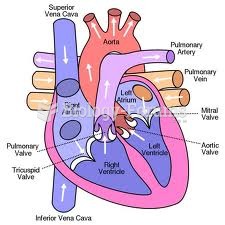|
|
|
Asthma attacks and symptoms usually get started by specific triggers (such as viruses, allergies, gases, and air particles). You should talk to your doctor about these triggers and find ways to avoid or get rid of them.
The heart is located in the center of the chest, with part of it tipped slightly so that it taps against the left side of the chest.
Chronic necrotizing aspergillosis has a slowly progressive process that, unlike invasive aspergillosis, does not spread to other organ systems or the blood vessels. It most often affects middle-aged and elderly individuals, spreading to surrounding tissue in the lungs. The disease often does not respond to conventionally successful treatments, and requires individualized therapies in order to keep it from becoming life-threatening.
In women, pharmacodynamic differences include increased sensitivity to (and increased effectiveness of) beta-blockers, opioids, selective serotonin reuptake inhibitors, and typical antipsychotics.
The first successful kidney transplant was performed in 1954 and occurred in Boston. A kidney from an identical twin was transplanted into his dying brother's body and was not rejected because it did not appear foreign to his body.
 Pelvic inflammatory disease. Chlamydia or gonorrhea spreads up the vagina into the uterus and then t
Pelvic inflammatory disease. Chlamydia or gonorrhea spreads up the vagina into the uterus and then t
 The cardiovascular system. A schematic view of the closed circulation of blood. The heart is section
The cardiovascular system. A schematic view of the closed circulation of blood. The heart is section





